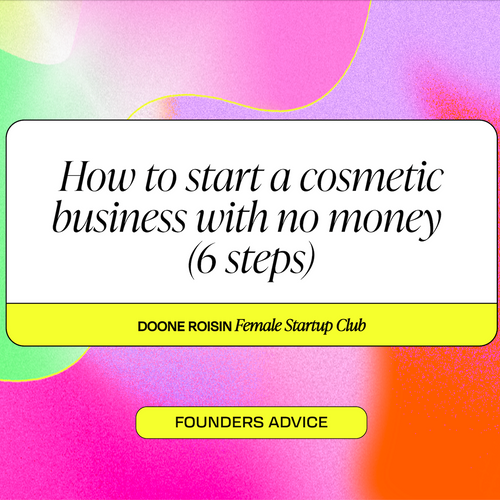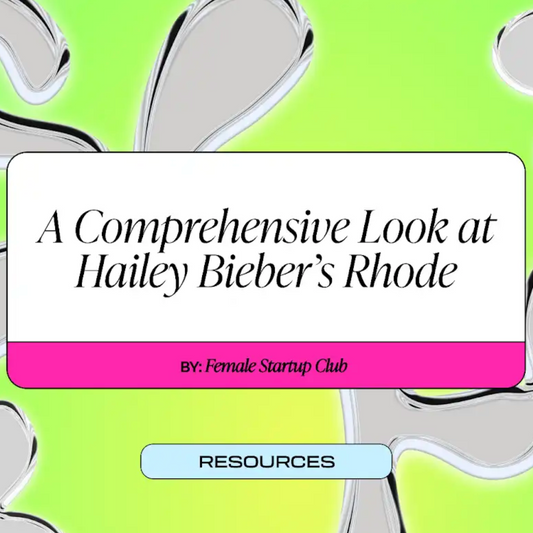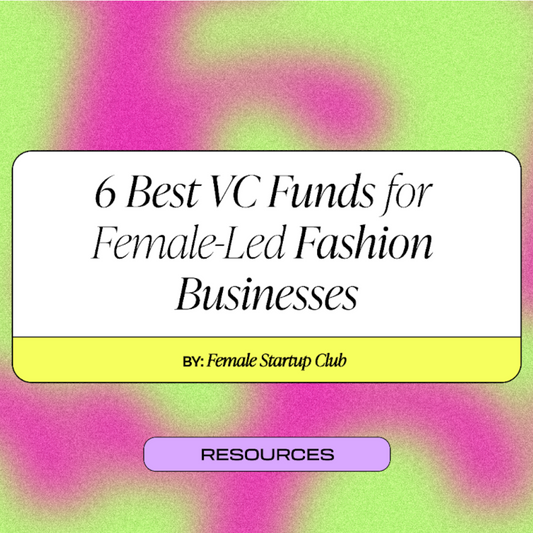Joining me today is Gwen Lane, Founder of The Spark School.
Usually I’m chatting to women in ecommerce but today we’re mixing things up! I was recently a guest on Gwen’s popular podcast, The Spark Show and today she’s joining us here to share her insights and learnings from along the way.
Gwen Lane is a seven figure entrepreneur and business coach who helps impact-driven content creators grow their influence and revenue through brand sponsorships and digital products. Since launching the Spark School in 2018, she's helped 5,000+ students worldwide through her online programs.
In this conversation we’re chatting about how to successfully build an online community and how entrepreneurs and small business owners should approach influencer marketing.

Today, we're diving into the wisdom of Gwen Lane, the dynamic founder of The Spark School. Gwen is a seven-figure entrepreneur who’s spent years helping content creators amplify their influence and revenue through brand partnerships and digital products. Since launching The Spark School in 2018, she has guided over 5,000 students worldwide, sharing invaluable lessons about building online communities and leveraging influencer marketing. Let’s explore some of her key insights and tips for success!
Getting Started: Write It Down
Gwen emphasizes the importance of putting your ideas on paper. It’s easy to feel overwhelmed when everything is swirling in your head. By jotting down your thoughts, you can turn those daunting ideas into manageable steps. She encourages entrepreneurs to articulate their visions boldly. A big dream can serve as motivation, and having it visible can help keep that inspiration alive.
The Power of Conversation
Talking about your ideas with others can make them feel more achievable. When an idea lingers in your mind, it can feel like a mountain to climb. Sharing it with friends or mentors can lighten the load and help you see it as a tangible goal instead of an insurmountable task.
Embracing Imposter Syndrome
Let’s be real: no one is immune to imposter syndrome. Gwen acknowledges that even successful entrepreneurs can question their choices. It's essential to recognize these feelings but not let them hold you back. Instead, focus on moving forward and leveraging your unique strengths.
Influencer Marketing: Tips for Success
When it comes to influencer marketing, Gwen has some golden rules. One crucial point is don’t pay influencers upfront. Always ensure there’s a contractual agreement in place, with payment following the delivery of content. This protects you and establishes a professional relationship.
Set clear goals for your campaigns. Whether you’re aiming for sales, traffic, leads, or brand awareness, knowing your objective will guide your strategy. Gwen stresses that one post might not convert immediately; building long-term partnerships and nurturing your audience is vital.
The Balance of Organic and Paid Strategies
Gwen shares that successful marketing strategies often blend organic content with paid advertising. While organic efforts are fantastic, they can only reach so many people without some financial backing. Investing in paid advertising can enhance visibility and attract a broader audience, complementing your organic efforts.
Daily Engagement Matters
Consistency is key! Gwen advises posting daily and planning content at least a week in advance. This approach allows you to engage meaningfully with your audience instead of scrambling for last-minute posts. When you show up consistently, you increase your chances of connecting with the right people.
Building Community Through Content
A strong online community is built on shared values and interests. Gwen believes that meaningful engagement starts with content. By creating valuable, relatable content, you invite your audience to engage with you and each other. Consider using microblogging techniques to connect deeply with your audience, sparking conversations and fostering relationships.
Navigating Influencer Relationships
When working with influencers, many misconceptions can arise. Gwen encourages small business owners to explore partnerships with micro or nano influencers who might be open to collaborations rather than high-cost sponsorships. Open communication about budgets and expectations can lead to fruitful partnerships.
Overcoming Challenges in Growth
Gwen candidly discusses the challenges that come with scaling a business. As you grow, the systems and processes that once served you may start to break down. Building a strong team aligned with your vision is crucial but can also be one of the most challenging aspects of entrepreneurship. It’s essential to be adaptable and ready to navigate these changes.
Advice for Aspiring Entrepreneurs
Gwen’s parting advice is straightforward: write it down, think big, and don’t be afraid to share your vision. Engage with others about your ideas and break them down into actionable steps. This strategy can help you overcome feelings of overwhelm and set you on the path to success.



